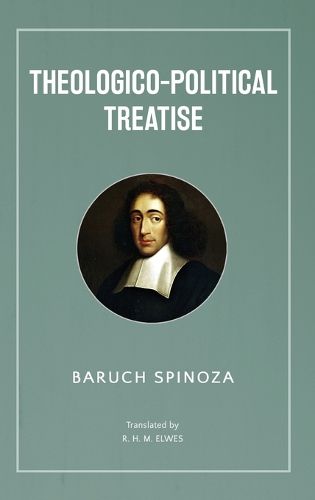Readings Newsletter
Become a Readings Member to make your shopping experience even easier.
Sign in or sign up for free!
You’re not far away from qualifying for FREE standard shipping within Australia
You’ve qualified for FREE standard shipping within Australia
The cart is loading…






Theologico-Political Treatise, is a 1670 work of philosophy written in Latin by the Dutch philosopher Benedictus Spinoza. The book was one of the most important and controversial texts of the early modern period. In it, Spinoza expounds his views on contemporary Jewish and Christian religion and critically analyses the Bible, especially the Old Testament, which underlies both. In Theologico-Political Treatise, Spinoza argues for the separation of theology and philosophy insisting that whereas the goal of theology is obedience, philosophy aims at understanding rational truth. Spinoza believes that in order for man to realize his full potential a society organized around the principles of reason is necessary. The work has been characterized as 'one of the most significant events in European intellectual history', laying the groundwork for ideas about liberalism, secularism, and democracy.
$9.00 standard shipping within Australia
FREE standard shipping within Australia for orders over $100.00
Express & International shipping calculated at checkout
Theologico-Political Treatise, is a 1670 work of philosophy written in Latin by the Dutch philosopher Benedictus Spinoza. The book was one of the most important and controversial texts of the early modern period. In it, Spinoza expounds his views on contemporary Jewish and Christian religion and critically analyses the Bible, especially the Old Testament, which underlies both. In Theologico-Political Treatise, Spinoza argues for the separation of theology and philosophy insisting that whereas the goal of theology is obedience, philosophy aims at understanding rational truth. Spinoza believes that in order for man to realize his full potential a society organized around the principles of reason is necessary. The work has been characterized as 'one of the most significant events in European intellectual history', laying the groundwork for ideas about liberalism, secularism, and democracy.